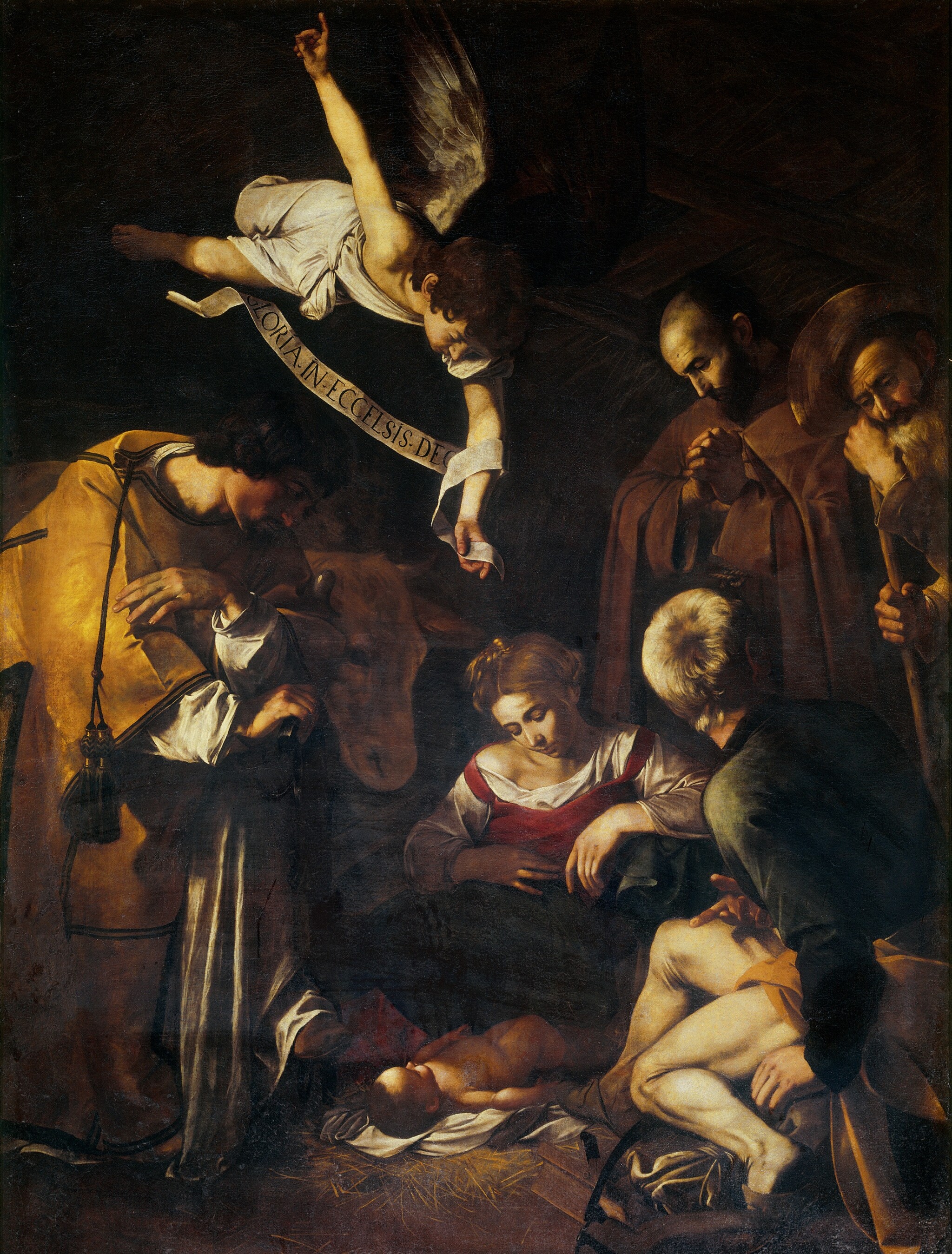And this shall be a sign unto you; Ye shall find the babe wrapped in swaddling clothes, lying in a manger. And suddenly there was with the angel a multitude of the heavenly host praising God, and saying, Glory to God in the highest, and on earth peace, good will toward men. And it came to pass, as the angels were gone away from them into heaven, the shepherds said one to another, Let us now go even unto Bethlehem, and see this thing which is come to pass, which the Lord hath made known unto us. And they came with haste, and found Mary, and Joseph, and the babe lying in a manger. And when they had seen it, they made known abroad the saying which was told them concerning this child. And all they that heard it wondered at those things which were told them by the shepherds. But Mary kept all these things, and pondered them in her heart. (Luke 2: 12-19)
Is Christianity a weak religion? When struck, Christians are told to turn the other cheek. When prosecuted for their convictions, Christians are told to walk to the scaffold obediently—even joyfully. Mary is extolled for her meekness and mildness; Christ was quickly and easily dispatched by the Roman authorities, as were almost all his apostles. None of this is a surprise: When Christ entered the world, he was swaddled like a newborn lamb and laid in a manger. He was born to die in the most humiliating conceivable fashion, striped and tortured, ignored by his friends, rejected by his people, abandoned by his Father. His last volition was to abjure not just life, but his own autonomy and dignity: “Not my will, but thine be done.” As Slavoj Zizek points out, Christianity is the only religion where God abandons even Himself.
Who would want such a God?
We ought to feel a little sympathy for those who hate Christianity’s weakness. It’s weak indeed. Nietzsche, that lion of antiquity born two millennia too late, remains one of Christianity’s most trenchant critics. His disciples have declined in quality, perhaps, but not in number. Who knows how many young men follow Andrew Tate out of Christianity and into Islam? Andrew Tate is wealthy, strong, and has access to all the women he could ever want. Jesus died poor, mangled, and more-or-less alone.
Or perhaps Christianity suffers from the opposite problem. Where the secular right looks on Christians as pitifully weak creatures, the left sees Christians as dangerous fanatics who will more readily kill than listen. Pete Hegseth has the crusader’s emblem, the Jerusalem cross, and the crusader’s motto, “Deus Vult” tattooed on his chest. You can imagine their dismay! Will we see a return to the Christianity that chased Islam out of Europe, that aggressively replaced classical civilization, that ensured that no corner of the planet was safe from its message? Jesus played nice, they think. He was a sort of a demi-Buddhist who might have fit well into a Brooklyn therapist’s office. But there is something poisonous in his message, something that set us down the road to Torquemada.
This is my first Christmas since being confirmed. I don’t have all the answers. But I am struck by something G. K. Chesterton said about his conversion to Christianity. Could it be that these critiques say more about their mouthpieces than their target?
In Orthodoxy, he points out a phenomenon that shows the world hasn’t changed too much since he wrote:
It was the fault of poor old Christianity (somehow or other) both that Edward the Confessor did not fight and that Richard Coeur de Leon did. The Quakers (we were told) were the only characteristic Christians; and yet the massacres of Cromwell and Alva were characteristic Christian crimes. What could it all mean? What was this Christianity which always forbade war and always produced wars? What could be the nature of the thing which one could abuse first because it would not fight, and second because it was always fighting? In what world of riddles was born this monstrous murder and this monstrous meekness? The shape of Christianity grew a queerer shape every instant…
And then in a quiet hour a strange thought struck me like a still thunderbolt. There had suddenly come into my mind another explanation. Suppose we heard an unknown man spoken of by many men. Suppose we were puzzled to hear that some men said he was too tall and some too short; some objected to his fatness, some lamented his leanness; some thought him too dark, and some too fair. One explanation (as has been already admitted) would be that he might be an odd shape. But there is another explanation. He might be the right shape. Outrageously tall men might feel him to be short. Very short men might feel him to be tall. Old bucks who are growing stout might consider him insufficiently filled out; old beaux who were growing thin might feel that he expanded beyond the narrow lines of elegance. Perhaps Swedes (who have pale hair like tow) called him a dark man, while negroes considered him distinctly blonde. Perhaps (in short) this extraordinary thing is really the ordinary thing; at least the normal thing, the centre. Perhaps, after all, it is Christianity that is sane and all its critics that are mad—in various ways.
Is it possible that Andrew Tate and his cohorts are too interested in external triumph? Or that there is something cowardly in the woke heart? It is not that Christianity (or Christ) is the average exactly. Far from it. It is the strangest phenomenon in human history, and riddled with paradoxes. But they are compelling paradoxes. One of them is that, as St. Paul tells us, “strength is made perfect in weakness.” The man who stares down the lions in the colosseum is not so different from the Lion-heart who charged the Saracens. In fact, it is the martyr who fells the strongest foes. It was enough to show how scornfully the Christian martyrs treated death to bring down the Roman Empire. The Temples of Zeus were conquered by examples of their courage; now the Vatican surveys the ancient city. “How many divisions does the Pope have?”, asked Stalin scornfully. Stalin did not live to see John Paul II emerge from the Socialist Realist city of Nowa Huta, but if he had, he would have seen cracks emanating from Poland, shooting like lightning all the way to Vladivostok, and shattering his empire completely.
Christians should not fear weakness, for it is a weakness that conquers. Christianity has dispatched many foes; doubtless it will dispatch many more. We Christians can help best by putting our trust in God and loving our neighbors unconditionally. On this day, we should all put politics aside. Hug your woke aunt. Talk genially with your Tate-bro nephew. Be of good cheer, and take to heart the words of Julian of Norwich. One day, in God’s good time, “All shall be well, and all manner of things shall be well.”
A very merry Christmas to you all.





Comments (0)
Only supporting or founding members can comment on our articles.